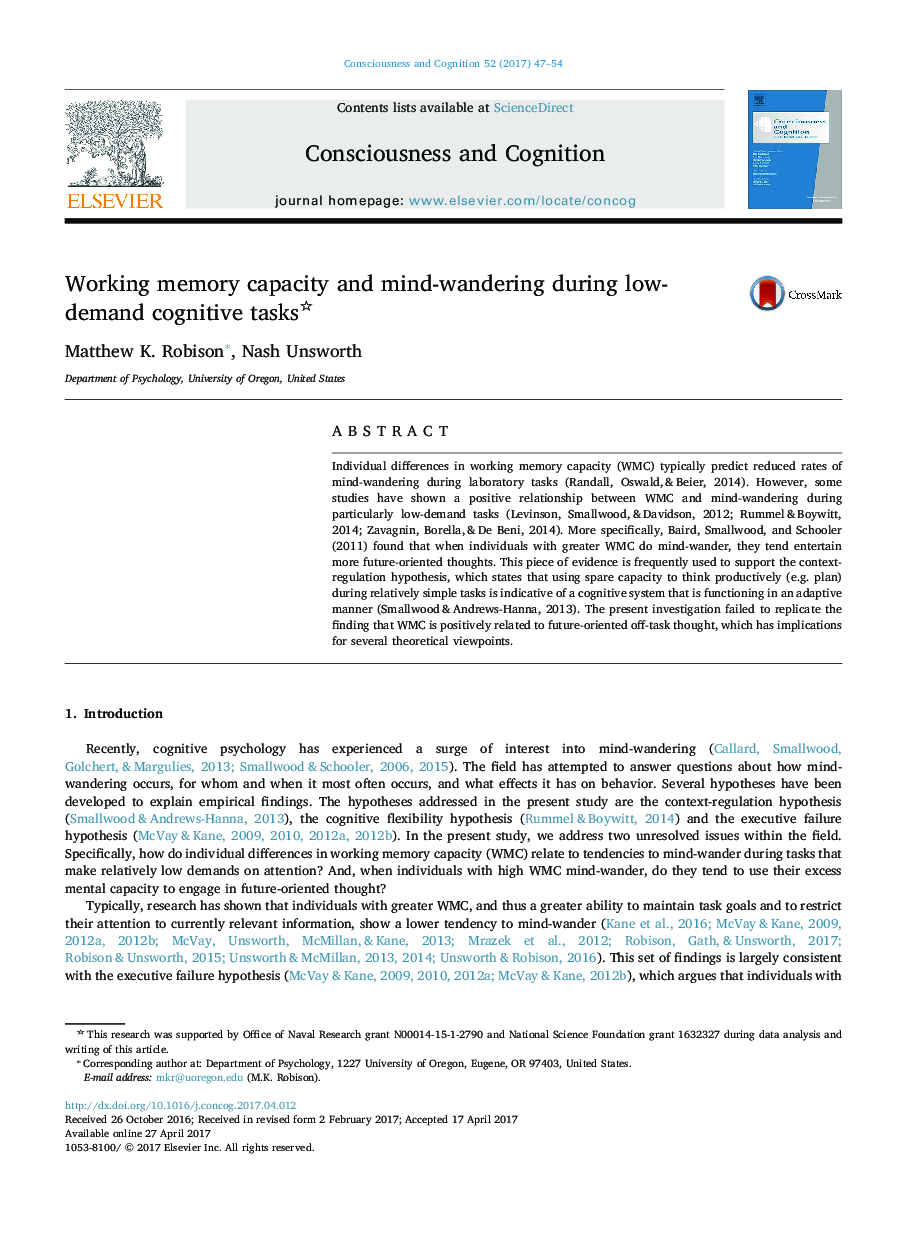| Article ID | Journal | Published Year | Pages | File Type |
|---|---|---|---|---|
| 5041766 | Consciousness and Cognition | 2017 | 8 Pages |
•Attempted to replicate finding that greater WMC predicts prospective mind-wandering.•We failed to replicate this finding, WMC negatively related to rates of mind-wandering.•Findings have implications for several theories of mind-wandering.
Individual differences in working memory capacity (WMC) typically predict reduced rates of mind-wandering during laboratory tasks (Randall, Oswald, & Beier, 2014). However, some studies have shown a positive relationship between WMC and mind-wandering during particularly low-demand tasks (Levinson, Smallwood, & Davidson, 2012; Rummel & Boywitt, 2014; Zavagnin, Borella, & De Beni, 2014). More specifically, Baird, Smallwood, and Schooler (2011) found that when individuals with greater WMC do mind-wander, they tend entertain more future-oriented thoughts. This piece of evidence is frequently used to support the context-regulation hypothesis, which states that using spare capacity to think productively (e.g. plan) during relatively simple tasks is indicative of a cognitive system that is functioning in an adaptive manner (Smallwood & Andrews-Hanna, 2013). The present investigation failed to replicate the finding that WMC is positively related to future-oriented off-task thought, which has implications for several theoretical viewpoints.
